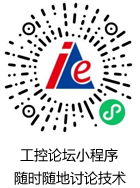OSGi and Echelon’s OSGi Products 点击:1574 | 回复:0
发表于:2001-11-05 16:29:00
楼主
OSGi and Echelon’s OSGi ProductsOSGi and Echelon’s OSGi Products
…in more technical depth
Inside an OSGi Gateway
Hardware
Platform independent, as long as there are
sufficient memory (RAM and flash)
enough CPU cycles
…to run the service bundles inside the OSGi
Framework inside the JVM (Java Virtual
Machine) on top of the underlying operating
system
Drivers
Drivers
When using the LONWORKS NAB with a custom (integrated) NSI interface, a native operating system and custom Java driver are required
Operating System
Operating system doesn’t matter as long as it supports a JVM and javax.comm native OS driver
Typical examples are
QNX Neutrino Microkernel RTOS
Wind River Systems VxWorks
Linus Torvald’s Linux
Windows (for development and possibly some deployments)
JVM
Sun’s version 1.2 or higher or compatibles from other companies
OSGi Framework
Version 1.0 released May 2000
Sun’s JES 2.0 is based on OSGi Framework v1.0
Version 1.1 is under development
OSGi Framework
Why is the OSGi Framework written in Java?
Platform independence
Dynamic code loading ability
Java security model
Object model allows a function’s interface to be separate from its implementation
OSGi Framework Terms
Service
The Java classes that perform certain functionality, usually written with interface and its
implementation separated
Bundle
The functional and deployment unit for shipping service(s)
OSGi Framework Terms
A bundle gets downloaded from the service center and then activated
The bundle may register (“publish”) one or more services to the Framework
Services may be published and unpublished under control of the bundle over time
OSGi Framework Required Services
HTTP Service
Allows a service to register a servlet with the web server so that dynamic web pages may be generated by the service
Log Service
Allows information, error and debug messages to be written to a log
Device Manager Service
Listens for new Device services and attaches drivers on top of devices
OSGi System Architecture
Operator aggregates services from one or more providers
Operator
hosts various
servers to
provide their
value-added
services
OSGi System Architecture
User plugs in new device
OSGi System Architecture
Appropriate device bundle and services are automatically
loaded into
the services
gateway
What Happens Behind The Scenes
LONWORKS Network Access Bundle (NAB) is downloaded into the Framework from the service center if necessary
NAB is started
NAB publishes lonworks service to the Framework
Homeowner plugs in the new oven
Oven sends a service pin message (automatically or under user control)
What Happens Behind The Scenes
NAB detects the new device and identifies its type based on its program ID
Commissions device into the user’s system local network using the remote LNS Server
Automatically informs service operator that the new device has been added so that the operator can take whatever additional steps, if any, are needed to start the service from its perspective (e.g., create a billing record) via LNS event mechanism
Registers a new Device service to represent the oven by registering a LwDevice instance (which implements the Device interface)
What Happens Behind The Scenes
What Happens Behind The Scenes
Each DriverLocator tries to find a match, which may include contacting a remote bundle repository to ask it to provide matching Driver IDs
LwDriverLocator matches based on the device’s program ID
For each match provided, the Device Manager
Checks to see if the corresponding Driver service has already been registered
If not, the Device Manager loads, installs, and starts the bundle
An oven monitoring and status service could then interact with the LONMARK services published for each of the LONMARK objects in the oven
The oven monitoring and status service may be in contact with the service center, or may produce live web pages that the homeowner would use to monitor or conf
热门招聘
相关主题
- 用CAN发送多帧数据,帧间间隔...
 [1573]
[1573] - 简单介绍DCS和FCS系统
 [1575]
[1575] - 中国软件业发展架构
 [1576]
[1576] - 反思:现场总线的优势
 [3523]
[3523] - 求一思路
 [1692]
[1692] - 急救啊!!:关于LIN总线的问题...
 [1743]
[1743] - LonWorks: Enabling the Net...
 [1372]
[1372] - 求助行家:现场总线或PLC如何...
 [3330]
[3330] - 请问:有人知道MVB(多功能车辆...
 [3983]
[3983] - 现场总线通讯接地探讨
 [5693]
[5693]

官方公众号

智造工程师
-

 客服
客服

-

 小程序
小程序

-

 公众号
公众号

















 工控网智造工程师好文精选
工控网智造工程师好文精选
